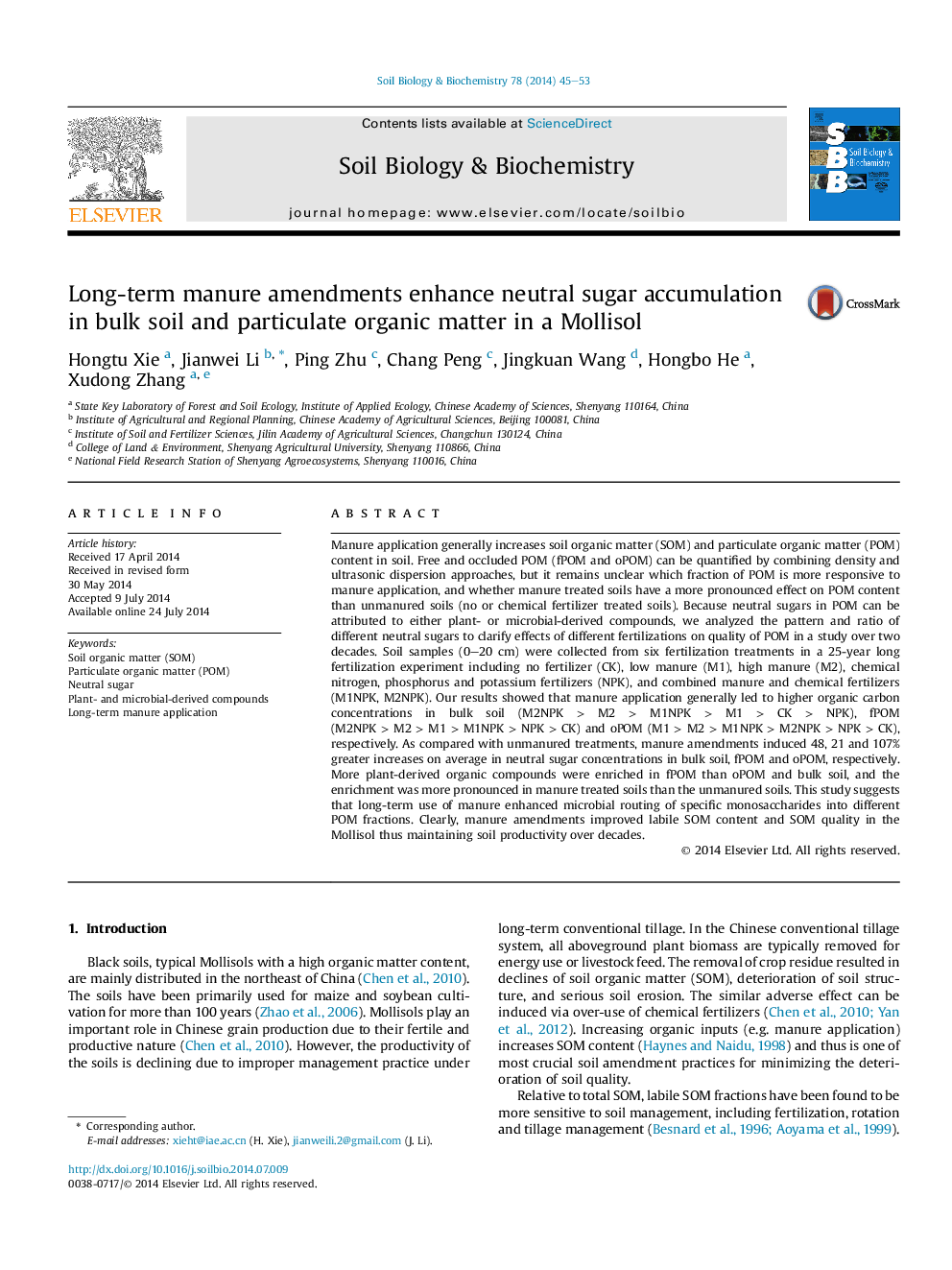| Article ID | Journal | Published Year | Pages | File Type |
|---|---|---|---|---|
| 2024568 | Soil Biology and Biochemistry | 2014 | 9 Pages |
•Manure application increased neutral sugar concentrations in POM and bulk soil by 21–107% greater than unmanured soils.•Xylose and glucose were most responsive to manure application.•Manure application altered microbial routing of neutral sugars into different POM fractions.•Manure application maintained soil productivity in a Mollisol over decades.
Manure application generally increases soil organic matter (SOM) and particulate organic matter (POM) content in soil. Free and occluded POM (fPOM and oPOM) can be quantified by combining density and ultrasonic dispersion approaches, but it remains unclear which fraction of POM is more responsive to manure application, and whether manure treated soils have a more pronounced effect on POM content than unmanured soils (no or chemical fertilizer treated soils). Because neutral sugars in POM can be attributed to either plant- or microbial-derived compounds, we analyzed the pattern and ratio of different neutral sugars to clarify effects of different fertilizations on quality of POM in a study over two decades. Soil samples (0–20 cm) were collected from six fertilization treatments in a 25-year long fertilization experiment including no fertilizer (CK), low manure (M1), high manure (M2), chemical nitrogen, phosphorus and potassium fertilizers (NPK), and combined manure and chemical fertilizers (M1NPK, M2NPK). Our results showed that manure application generally led to higher organic carbon concentrations in bulk soil (M2NPK > M2 > M1NPK > M1 > CK > NPK), fPOM (M2NPK > M2 > M1 > M1NPK > NPK > CK) and oPOM (M1 > M2 > M1NPK > M2NPK > NPK > CK), respectively. As compared with unmanured treatments, manure amendments induced 48, 21 and 107% greater increases on average in neutral sugar concentrations in bulk soil, fPOM and oPOM, respectively. More plant-derived organic compounds were enriched in fPOM than oPOM and bulk soil, and the enrichment was more pronounced in manure treated soils than the unmanured soils. This study suggests that long-term use of manure enhanced microbial routing of specific monosaccharides into different POM fractions. Clearly, manure amendments improved labile SOM content and SOM quality in the Mollisol thus maintaining soil productivity over decades.
